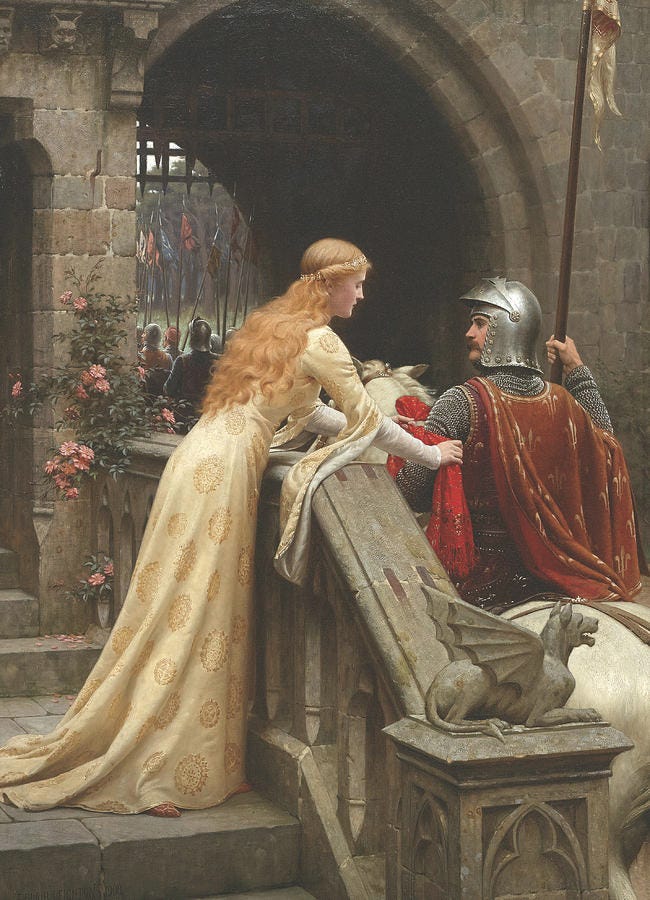After Virtue: The Roles of Telos & Virtue
“In a sort of ghastly simplicity we remove the organ and demand the function. We make men without chests and expect of them virtue and enterprise. We laugh at honour and are shocked to find traitors in our midst. We castrate and bid the geldings be fruitful.”- C.S. Lewis, The Abolition of Man
We began last week’s essay with an attempt to define the emotivism or the moral relativism that pervades the current generation. The antithesis of this modern trend can be found in the ancient virtues of the Greeks, exemplified by the first principles of Socrates and the Natural Law identified by Aristotle and further expounded upon by Thomas Aquinas. These principles were teleological in nature. For Socrates and Aristotle, moral actions aimed towards an ultimate good, or a Telos, which was defined as human thriving, or eudemonia by Aristotle. For each of these philosophers, the virtues were as objective as the blue of the clear sky. Virtue was metaphysical and not subject to the whims of human emotion or subjective perception. For the ancients, a person could not invent a new system of morality or Virtue in the very same way they could not invent a new primary color. This understanding of ethics and moral Virtue was the generally accepted moral zeitgeist until the enlightenment project, which sought to rationalize ethical behavior and decouple it from its teleological and a priori routes.
We found in our study of this topic two more contemporary examples of efforts to revitalize virtue ethics and found their works are strikingly in tune. C.S. Lewis, the renowned author of the Chronicles of Narnia and famous contemporary of J.R.R. Tolkien, once delivered a series of three lectures in 1943, collectively entitled The Abolition of Man. He explores the very same questions, albeit from a more contemporary and less academic lens, that Alasdair Macintyre takes in his work After Virtue. Ultimately, they come to the same conclusion, but I believe C.S. Lewis succinctly posits a contemporary solution to these issues that is palatable and generally more relatable.
C.S. Lewis puts forward that there exists a Tao, or a Way, that exists outside and is objectively separate from human subjective perception. This Tao has been called by many names. For Socrates, it was the First Principles. For Aristotle and Thomas Aquinas, it was Natural Law, and for many, we know it as Traditional Morality. C.S. Lewis contends that there is an objective truth that lends itself to all value judgments. The Tao itself is the source of all value judgments. Any attempt at the formation of a new system of ethics or even an attack on ethics itself is merely a bastardization or corruption of the principles taken from the Tao itself. The Tao is eternal and can be traced throughout all objective moral traditions. You would be hard-pressed to find an example of a culture that glorified and sought to inculcate the Virtue of cowardice or a society that taught its people to disrespect their parents, family, and elders, for example. These objective virtues exist separately from our perceptions of them and have been expressed in some form or another throughout recorded history.
In the second part of the Abolition of Man, C.S. Lewis outlines the Tao and its role throughout the history of Moral Philosophy. He cites examples where aspects of the Tao are taken to excess to the detriment of their respective cultures. An example of this is the emphasis and cultivation of martial virtues by ancient Sparta, to the negligence of kindness, charity, and even familial affection. The virtues espoused in the Tao are In something akin to the middle way espoused by Gautama Buddha or the golden mean discussed by Aristotle. These virtues exist on a spectrum. Their expression should be balanced towards this mean, and the expression of these virtues, the expression of the soul through Virtue, is what ultimately leads us towards our ultimate aim of a good life or eudemonia. Additionally, it stands that true happiness is a side effect of this balanced expression of Virtue rather than happiness being good in and of itself. The old Latin phrase, virtus ipsa pretium sui, the idea that Virtue is its own reward, comes to mind.
For the ancients, Virtue and the expression of moral excellence were necessary for the good life. These ideas were shared across the culture, celebrated in their stories and mythology, and inculcated in their youth. The emulation of these characters of myth and their virtues led to the likes of Alexander the Great, Julius Caesar, and even more contemporary great men such as Napoleon and other classically educated individuals. It is striking that despite all of our enlightenment and modern efforts to answer the question “How ought we act?”, a compelling and powerful example exists and has existed since ancient the ancient Greeks and Romans. Perhaps further attempts at the deconstruction of traditional morality will prove fruitless, our moral relativism project will fail, and we will see a resurgence of these virtues throughout the world.
The subject of next week’s essay will be an attempt to define and codify these first principle virtues and how we can begin to inculcate and express them in our own lives.
We leave you with this quote from Ralph Waldeau Emerson from his essay on heroism that is inspiring and cogent.
”The essence of greatness is the perception that Virtue is enough.”


